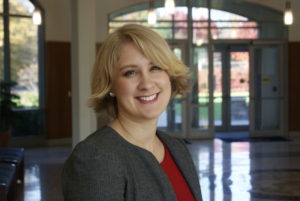Meredith MacKenzie Greenle, Villanova University – Informal Caregivers

SONY DSC
Caregivers for hospice patients also need some help.
Meredith MacKenzie Greenle, Assistant Professor at the M. Louise Fitzpatrick College of Nursing at Villanova University, details how we can care for the caregivers.
Negotiating end-of-life care can leave many family members and loved-ones of the elderly searching for support. Meredith MacKenzie Greenle, PhD, RN, ANP-BC, CNE focuses her research on end of life outcomes and support for family caregivers, as well as how to provide the best care for aging adults. Dr. MacKenzie is an expert on a number of end-of-life healthcare issues including end-of-life treatment preferences, costs of care for chronically ill aging adults, and hospice care outcomes.
Informal Caregivers
Behind almost every hospice patient is an informal caregiver – a family member or friend who assists with care, provides companionship in the end of life and makes decisions when the patient can no longer speak for themselves. These informal caregivers are invaluable. But caregiving comes at a cost; informal caregivers experience significant physical, emotional, spiritual and financial distress.
In one of my first studies using a large national database of caregivers surveyed after the death of a loved one in hospice, I found that family caregivers gave high marks to hospice for managing their loved one’s symptoms and coordinating care. But 42 percent were dissatisfied with the teaching that they received and almost a third were unhappy with the emotional support provided. When I was presenting my findings, I was asked why this was a concern – after all, said my questioner, “the caregiver isn’t the one dying.” No, caregivers are not actively dying; instead, they will be the survivors of end of life care.
Caregiver perceptions of a loved one’s death influences their risk for depression, guilt and complicated grief. Whether the death of a loved one is considered a “good death” and the role the caregiver played in achieving this “good death” shapes caregivers’ perception of whether they were a good caregiver, a devoted spouse, a loving child. And the effects are not just emotional; caregivers are at higher risk for sleep disturbances, chronic pain, cardiovascular disease and premature death than non-caregivers.
How do we help caregivers? My ongoing research suggests that modifying caregivers’ perceptions of their circumstances is easier than modifying their circumstances. Helping caregivers cope, while helping their loved ones achieve a peaceful death, results in better outcomes for both.


